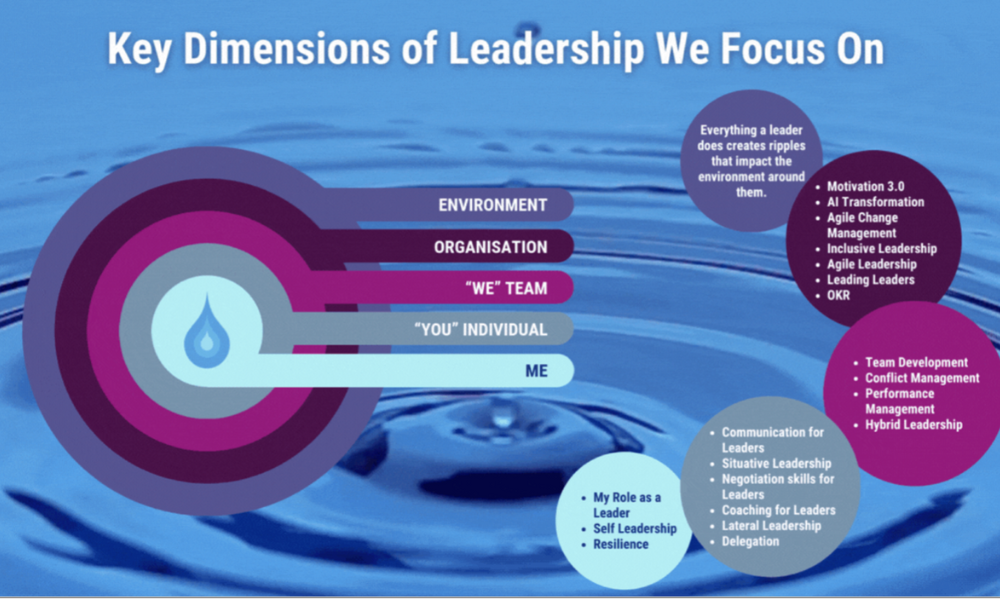
Mastering Communication: The Why, How, and What
Mastering Communication: The Why, How, and What
Do you prefer to listen to this article? Click below to access our AI-generated audio version!
Mastering Communication: The Why, How, and What
Have you ever heard an employee say something like, “I won’t be able to meet the upcoming deadlines”? While the words may seem straightforward, they often hint at deeper underlying concerns. In this article, I delve into this statement through the lens of two well-known iceberg models, uncovering what lies beneath the surface…..
The iceberg models of Paul Watzlawick (of communication) and William Ury’s/Roger Fisher’s and Daniel Shapiro’s (positions vs. interests) share a common structure that emphasizes the elements of human interaction. Aligning these two models provides a deeper understanding of the interplay within communication strategies.
Watzlawick’s communication iceberg model:
- Above the surface – Fact-based communication: The pure content of the communication, such as words, facts or data communicated to the interlocutor. E.g.: ‘I want to complete this project by the end of this week’.
- Below the surface – Relational communication: The unspoken and emotional dynamic that underlies the actual content, such as tone, trust, non-verbal signals, and power. E.g.: A leader’s tone of voice suggests frustration or urgency, which influences how the message is received.
Ury and Shapiro’s iceberg model – positions vs interests:
- Above the surface – Positions: Explicit messages about what someone wants. Positions are noticeable but do not yet reveal underlying motivations. E.g.: ‘I need a 10% increase in my head count next year’.
- Below the surface – Interests: The deeper needs, desires, fears, and motivations that drive a position. Interests often refer to humanistic needs such as autonomy, recognition, or security. E.g.: Asking for a higher amount of workers next year reflects my need for recognition, security, or justice.
Both models emphasize the importance of understanding not only what is visible, but also what lies beneath the surface in human interaction. They agree with each other to the following extent:
|
Watzlawick’s iceberg model of communication |
Ury’s/Shapiro’s iceberg model – positions vs interests |
|
Fact-based communication (above the surface): Focuses on the pure content of the communication, such as words, facts or data. |
Positions (above the surface): A clear request or message about what is wanted. |
|
Relational communication (below the surface): Focuses on implicit dynamics such as tone, emotions, trust and the quality of the relationship. |
Interests (below the surface): The deeper needs, concerns and motivations driving our positions. |
|
Key findings: What is said is influenced by relational aspects (e.g. trust, power). Ignoring relational dynamics quite often leads to misunderstandings. |
Key findings: Specific positions often mask hidden interests. Only an understanding of mutual interests can lead to a more constructive outcome. |

Practical implementation (1):
1. Communication while staying in touch with your Stakeholders:
Factual communication (based on your position) only serves as a starting point in reaching a solution, while relational communication (tone, trust) determines how your position is perceived. Recognizing deeper interests guides relational communication to build rapport and mutual understanding.
2. Conflict resolution:
Relationship breakdown (the hidden dynamic in Watzlawick’s model) results from long-established positions (evident in the Ury/Shapiro model). Addressing relational issues (e.g. respect, autonomy) generally leads to the discovery of shared/agreed interests.
3. Key questions so as to ‘dive below the surface’:
- What is being said by the other side? (Positions/facts)
- How is it being said? (Relationship dynamics)
- Why is it being said? (Interests/basic motivations).
Practical implementation (2): Conflict in the workplace.
Scenario: An employee says: ‘I am unable to meet the upcoming deadlines’.
- Watzlawick’s perspective: The actual message is failure to meet a deadline; the relational message may (our assumption) include frustration or fear of being perceived as an incompetent co-worker.
- Ury’s/Shapiro’s perspective: The position is to refuse to meet a deadline; the interest may be to avoid burnout, being overloaded, or the need for greater clarity on priorities.
Conclusions:
By addressing both relational communication (e.g. showing empathy, and understanding people’s psychological needs) and underlying interests (e.g. redistribution of tasks or a new role in the team), a leader is able to solve issues/problems more effectively than by merely focusing on positions or factual messages.

Marcin Swierkocki
Trainer, Coach & MDI Partner
Marcin Swierkocki works as an HR business consultant who has specialized in L&D, change- and project management. He brings over 25 years of international experience in change management and operational development with him. His personal motto is influenced by Viktor Frankl: ‘Between stimulus and response there is a space. In that space is our power to choose our response. In our response lies our growth…’. His personal inspiration comes from his optimistic and positive character and by draining the energy that successfully supporting others gives him.


















